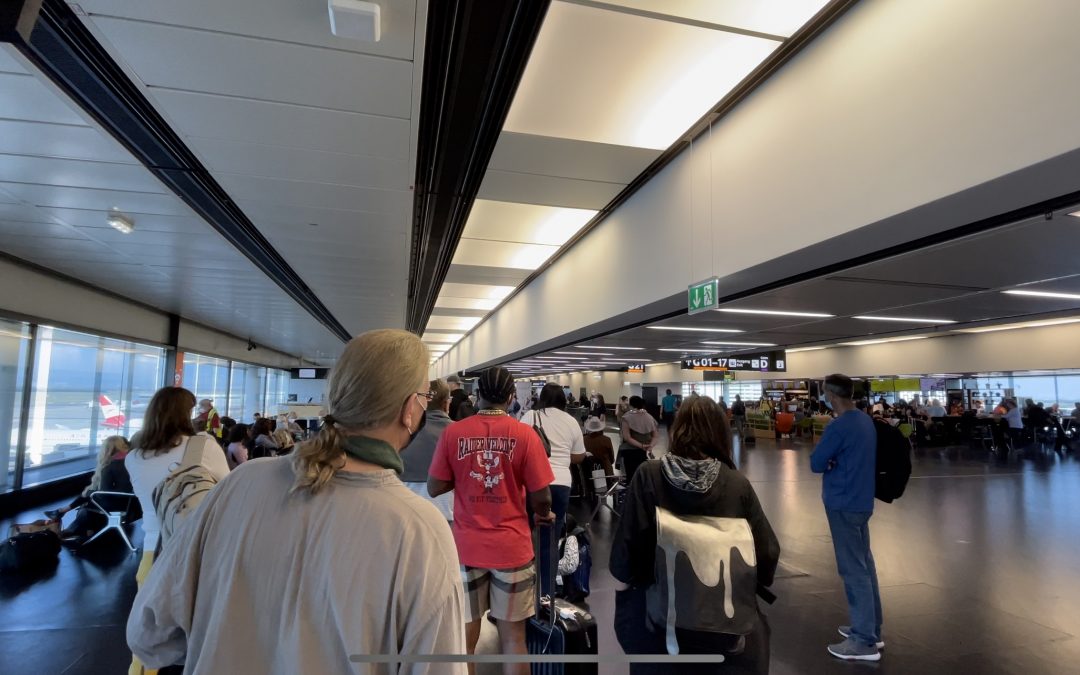WASHINGTON — A consumer group is recommending that the Department of Transportation require airlines and ticket agents to provide prompt refunds to travelers in the event of cancellations or significant delays.
The Aviation Consumer Protection Advisory Committee made the recommendation on Thursday as part of the department’s rulemaking process. This is its first meeting after breakdowns in airline transportation during the holiday season. Southwest Airlines faced the most notable backlash after a large winter storm disrupted its internal scheduling systems in late December, leading to more than 16,000 flight cancellations.
Michigan Attorney General Dana Nessel, the committee’s chair and state and local government representative, said recent events have reaffirmed the importance of the committee.
“Complaints to my department about airline travel are at an all-time high,” Nessel said Thursday. “I’m just really hopeful that this committee has the opportunity to make a meaningful difference in terms of airline travel and the experience that consumers have because people are losing faith in the system.”
No federal laws require airlines to compensate passengers for delayed flights or incidental expenses. Instead, individual airlines are in charge of creating their policies.
ACPAC, however, recommended the DOT codify a policy that would ensure refunds if consumers did not accept alternative transportation. The committee was formed in 2012 after an act of Congress and is responsible for assessing, improving and expanding consumer protection programs.
The latest recommendations define a canceled flight as one that the carrier did not operate after it was published in the Computer Reservation System. They define a significantly delayed flight as one that is more than three hours late for domestic flights and more than six hours late for international flights.
Other notable recommendations the ACPAC approved include a standard for major ticket agents to refund credit card payments within seven days and all other types of payment within 20 days. It also recommended the DOT require airlines and ticket agents to issue non-expiring travel credits for some consumers who are unable to travel because of certain illnesses.
The deputy general counsel of the industry group Airlines for America, Doug Mullen, abstained or voted against every recommendation except the one ensuring refunds.
The DOT does not have to accept the committee’s recommendations. But Blane Workie, the assistant general counsel for DOT and the committee’s federal officer, said the committee would prioritize it because the committee included “significant stakeholders.”
The ACPAC also provided guidance on transparency for baggage fees and change and cancellation fees. It considered recommendations from ticket agents, who said they should only have to provide consumers with fee information “upon request.”
The committee’s consumer representative, John Breyault, who is also vice president of public policy, telecommunications and fraud at the National Consumers League, expressed concerns with this approach. He said most travelers are not aware of specific costs.
“You may leave the consumer with an incorrect understanding of what the cost is going to be,” Breyault said. “That information particularly, on baggage fees, is not insignificant. We’re talking $35 per bag now on domestic itineraries.”
Breyault also applied his reasoning to change and cancellation fees and said everyone is entitled to the same information, whether they call in person or try to book online.
Mullen said the proposed changes would crowd ticketing sites with an overload of information.“Is that something that passengers are interested in? Is it something that people want?” Mullen asked.
He said he abstained from voting because he wanted to wait for more information.
The remaining three committee members agreed consumers should be prompted to disclose whether they plan to travel with bags before they buy tickets, and receive the baggage fee disclosures following their answer. They also agreed that airlines should display change and cancellation fees in a consistent fashion and that customers should not be able to opt out of seeing those fees.


